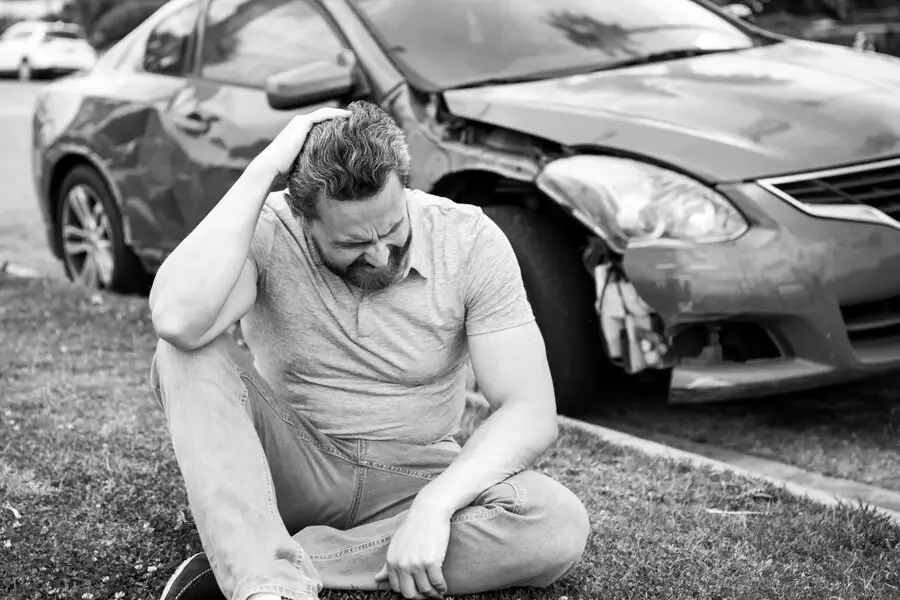personal injury lawyers
Fighting for maximum injury compensation for you and your family
No Fees Until We Win


What You Need To Know About Anxiety After A Car Accident
Car accidents are often traumatic events that can leave lasting effects on both physical and mental well-being.
While physical injuries are more apparent, it’s crucial to recognize the impact on mental health, specifically anxiety and post-traumatic stress disorder (PTSD).
In this comprehensive guide, we’ll explore the symptoms of anxiety after an accident, the duration it may last, and practical steps for recovery.

Top Symptoms of PTSD and Anxiety
The duration of PTSD After a car accident, individuals may experience a range of symptoms indicative of anxiety often related to the trauma of the event.
Recognizing these signs is essential for seeking appropriate help. Common symptoms include:
1. Accelerated Heart Rate
One prevalent symptom is an accelerated heart rate, where individuals feel their hearts racing even in non-stressful situations.
This physiological response can be alarming and indicative of heightened anxiety levels.
2. Sweating
Experiencing excessive sweating unrelated to physical exertion is another common manifestation.
This can occur as a response to the stress and emotional strain resulting from the accident.
3. Trembling and Shaking
Uncontrollable shaking or trembling, often in response to triggers associated with the accident, is a hallmark symptom.
This physical reaction reflects the emotional toll the event has taken on the individual.
4. Shortness of Breath
Difficulty breathing or a sensation of breathlessness is a distressing symptom that may accompany anxiety after a car accident. It can contribute to an overall sense of unease and panic.
5. Feeling of Choking
Some individuals may experience a sensation of being choked or difficulty swallowing. This can be linked to heightened anxiety and the psychological impact of the traumatic event.
6. Chest Pain or Discomfort
Unexplained chest pain that may be related to anxiety is not uncommon. The emotional strain of the accident can manifest physically, adding a layer of distress.
7. Abdominal Distress
Digestive issues such as nausea or stomach discomfort can be prevalent symptoms.
The connection between the mind and the gut becomes evident as anxiety affects various bodily functions.
8. Nausea
Feeling queasy or having the urge to vomit is a common manifestation of heightened anxiety levels.
This physical response reflects the emotional turmoil experienced after the accident.
9. Dizziness and Lightheadedness
Feeling unsteady or faint is another symptom that can result from post-accident anxiety. It contributes to a sense of vulnerability and unease.
10. Chills
Experiencing sudden chills unrelated to the environment is a physiological response to heightened stress. It underscores the impact of the accident on the individual’s overall well-being.
11. Numbness or Tingling in Extremities
A sensation of pins and needles in the limbs is a physical manifestation of the emotional distress following a car accident. It adds to the overall discomfort experienced by the individual.
12. Derealization
Feeling detached from reality or surroundings is a psychological symptom that may occur after a traumatic event.
It can make the individual feel disconnected from their own experiences.
13. Fear of Losing Control
An overwhelming fear of losing control of oneself is a common emotional response. This fear can permeate various aspects of life and contribute to ongoing anxiety.
14. Fear of Death
A persistent fear of imminent death is a profound manifestation of post-accident anxiety. It reflects the gravity of the trauma experienced during the car accident.
How Long Should Anxiety Last After a Car Accident?
The duration of anxiety after a car accident varies from person to person. While some individuals may recover quickly, others may experience prolonged symptoms.
It’s essential to seek professional help if anxiety persists for more than a few weeks. Early intervention increases the likelihood of effective treatment.
How to Recover From Anxiety After a Car Accident
Recovery from anxiety after a car accident involves a combination of self-help strategies and professional assistance. Here are the steps you can take:
Things You Can Do Yourself to Recover From Anxiety
- Acknowledge Your Feelings: Accept and recognize your emotions without judgment.
- Seek Support: Talk to friends, family, or a therapist about your experiences.
- Practice Relaxation Techniques: Engage in activities like deep breathing or meditation.
- Gradual Exposure: Gradually expose yourself to situations triggering anxiety to build resilience.
- Establish Routine: Create a daily routine to provide structure and stability.
- Healthy Lifestyle: Prioritize proper nutrition, regular exercise, and sufficient sleep.
Why Anxiety Happens After Car Accidents
Understanding the reasons behind post-accident anxiety is crucial for effective recovery. Anxiety often stems from:
- Car accidents are inherently traumatic events that can leave a lasting impact.
- A heightened fear of another accident or related triggers.
- Pain and discomfort from physical injuries contribute to overall distress.
- Worries about medical bills, vehicle repairs, and legal issues amplify anxiety.
Anxiety Treatment from Your Doctor
For severe or persistent anxiety, professional intervention is necessary. Medical professionals can offer the following treatments:
1. Medications
- Anti-Anxiety Medications: Prescription medications to alleviate anxiety symptoms.
- Antidepressants: Medications that can help manage anxiety and depression.
2. Physical Therapy
- Counseling and Therapy: Therapeutic approaches such as cognitive-behavioral therapy (CBT) can be effective.
- Exposure Therapy: Gradual exposure to triggers in a controlled environment to reduce anxiety.
See also: When Should I Go to Physical Therapy After a Car Accident?
Consult with an Experienced Car Accident Attorney in New Jersey
When processing the after-effects of a car accident and dealing with the complexities of legal matters, seeking guidance from an experienced attorney is paramount.
The expertise of professionals, such as the dedicated team at Rosengard Law Group, can provide invaluable assistance in understanding your rights and pursuing the compensation you deserve.
An experienced car accident attorney in New Jersey will help you process the complexities of insurance claims, assess the impact of anxiety on your case, and work tirelessly to ensure your legal rights are protected.
Taking this step not only provides legal support but also alleviates the burden, allowing you to focus on your recovery with the assurance that your case is in capable hands.
FAQs
Can you claim for anxiety after an accident?
Yes, you can potentially claim compensation for anxiety after a car accident. Consult with a legal professional to understand your specific case.
How can I get compensation for anxiety after a car accident?
To seek compensation, gather evidence of the impact of anxiety on your life, such as medical records and therapy bills.
Conclusion
Anxiety after a car accident is a common and valid response to a traumatic event. Recognizing the symptoms, understanding the potential duration, and taking proactive steps for recovery are crucial aspects of regaining control over your mental well-being.
Seeking both self-help strategies and professional guidance ensures a comprehensive approach to overcoming post-accident anxiety.
Remember, recovery is a gradual process, and with the right support, you can reclaim a sense of normalcy in your life.

Free Injury Case Evaluation
Send the form below and we will call you back in minutes.
…or Call Us Now
856-284-6446
